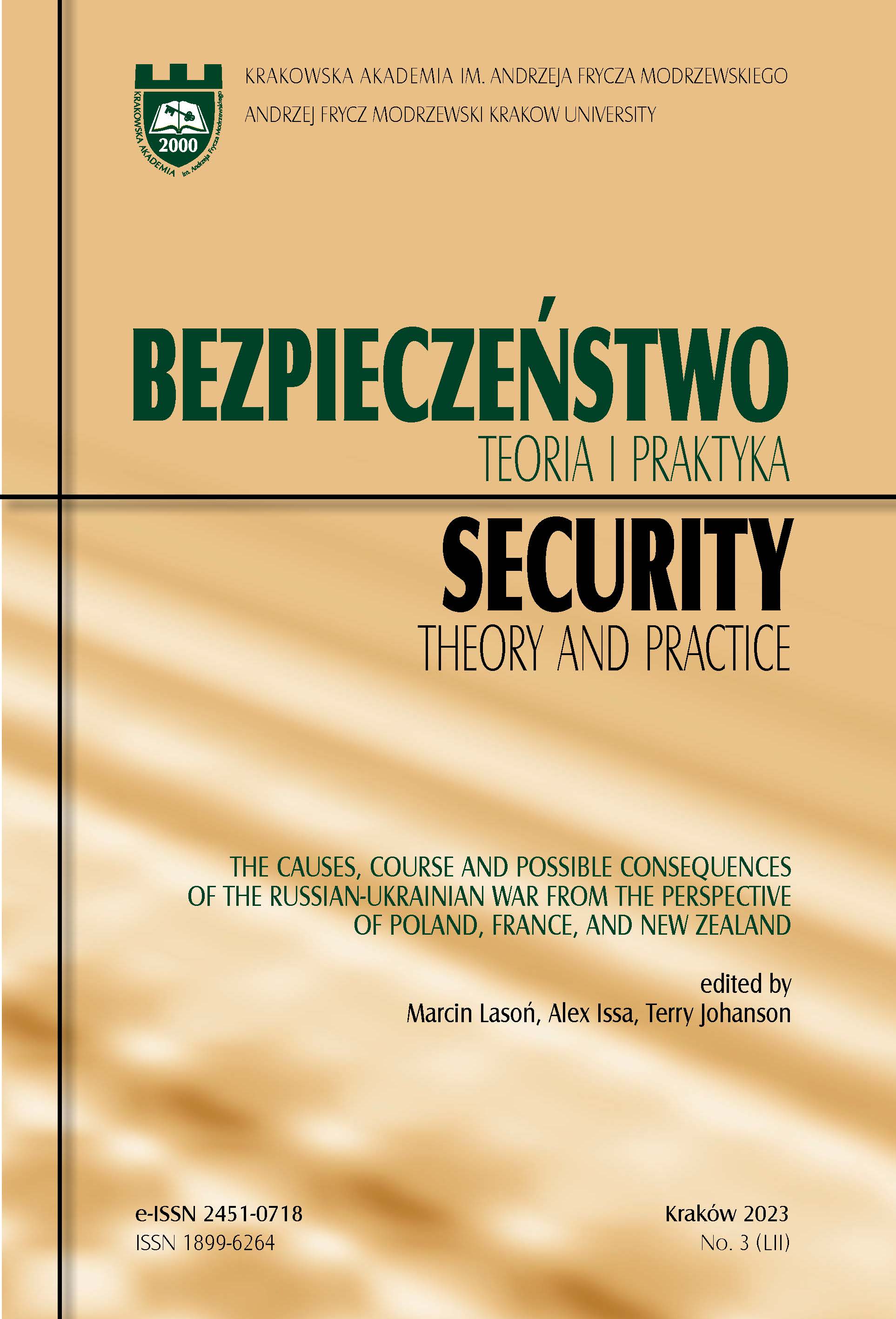The trade effects of the war in Ukraine from the European Union’s and – in particular – Poland’s perspective
The trade effects of the war in Ukraine from the European Union’s and – in particular – Poland’s perspective
Author(s): Małgorzata CzermińskaSubject(s): Politics / Political Sciences, Politics, Geography, Regional studies, Economic policy, Security and defense, Military policy, EU-Approach / EU-Accession / EU-Development, Geopolitics, Peace and Conflict Studies, Asylum, Refugees, Migration as Policy-fields
Published by: Oficyna Wydawnicza AFM Uniwersytetu Andrzeja Frycza Modrzewskiego w Krakowie
Keywords: war in Ukraine; the European Union; embargo; trade; Deep and Comprehensive Free Trade Agreement
Summary/Abstract: The war in Ukraine is the third asymmetric shock that the European Union has experienced in the last two decades, after the 2008 financial and economic crisis, the following Eurozone crisis, and the COVID-19 pandemic. Although Russia’s and Ukraine’s shares in the global trade and production are relatively small, they are important suppliers of basic products, specifically food and energy. Therefore, the trade consequences of the war for the European Union, Ukraine’s important trading partner, deserve special attention. The war also disrupts trade relations between the EU and Russia. The EU’s direct trade sanctions are limited to specific sectors, such as oil, coal, arms, dual-use goods, as well as the aviation and space industry. However, financial sanctions, particularly the SWIFT ban imposed on seven Russian banks, increase the costs of commercial transactions considerably. This paper aims to present the trade effects of the war in Ukraine from the European Union’s, Member States’ and, in particular, Poland’s perspective. This refers not only to the trade creation and diversion effect, but also to changes in the structure of the EU’s trade regarding the main groups of goods. These effects will vary depending on direct trade links, dependence on Russian energy and susceptibility to rising energy prices. Given an extensive range of parties involved and issues covered by the research, this paper focuses only on the main aspects of the problem.
Journal: Bezpieczeństwo. Teoria i Praktyka
- Issue Year: LII/2023
- Issue No: 3
- Page Range: 57-79
- Page Count: 23
- Language: English

